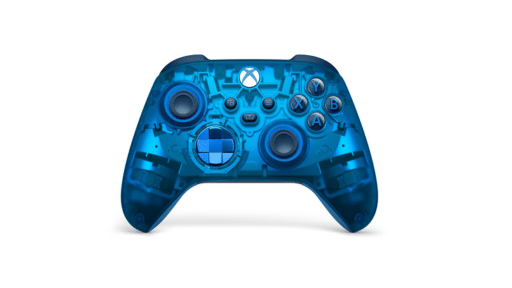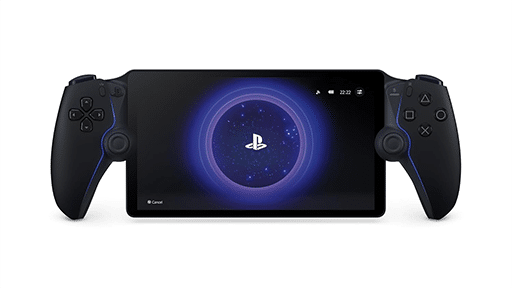
RAIDOU Remastered: The Mystery of the Soulless Army brings one of Atlus’s lesser-known spinoffs back for a second chance. Originally released on PS2 in 2006, this updated version modernizes the Devil Summoner action RPG with revamped combat, added voice acting, and smoother gameplay. It’s not just a resolution bump or a light visual update. The remaster goes much deeper, reshaping core mechanics while keeping the story and characters intact.
If you missed the original, you’re not alone. The Raidou games never got the spotlight like Persona or Shin Megami Tensei. But this remaster puts Raidou Kuzunoha XIV back in action, and this time, it feels much closer to a full rework than a simple visual polish. You get real-time combat, quality-of-life upgrades, and a surprisingly smooth performance compared to other recent Atlus remasters.
This version doesn’t reinvent the structure, but it does clean up a lot of what held the original back. There’s still some dated design, especially in how exploration works, but the improvements are significant enough to make this feel fresh. Whether you’re a longtime fan of SMT or just curious about a forgotten chapter of Atlus history, this remaster gives Raidou a proper return.
A Noir Mystery with Demons
The story follows Raidou Kuzunoha XIV, a young Devil Summoner working undercover at the Narumi Detective Agency in 1930s Tokyo. He starts out handling routine supernatural cases for a secret group called the Yatagarasu, but things take a turn when a girl shows up asking the agency to end her life, then disappears before explaining why.
From there, the game moves into episodic cases that slowly connect to a larger conspiracy. Some cases involve missing cargo or strange disappearances, but each one ties back to the bigger mystery surrounding the red-caped soldiers and the Daidoji family. The structure feels focused, and the pacing stays sharp across the shorter runtime.
What helps most is the main cast. Narumi, Gouto, and Tae all bring personality and warmth to the darker story beats. Raidou doesn’t speak, but the people around him carry the dialogue well. Scenes are now fully voiced, and that gives side conversations and key events more energy.
While the detective angle sounds deeper than it is, the plot stays interesting through its strange twists and historical setting. You’re not solving tough cases or drawing your own conclusions. You mostly follow map markers and trigger key conversations, with the occasional quiz or dialogue prompt.
Even so, the story stands out from typical Atlus games. It avoids high school drama and saves the world tropes in favour of political power struggles, secret organizations, and supernatural threats in a changing Japan. t’s not complex, but it’s different enough to stand out, and that’s part of the appeal.

Swordplay, Summons, and Streamlined Chaos
Combat in RAIDOU Remastered is where the biggest changes show. The original’s random encounters and stiff controls are gone. Battles now trigger in real-time arenas, with Raidou joined by two demons that can fight on their own or follow simple commands. You can launch light and heavy combos, dodge enemy attacks, and fire off elemental skills to stun enemies and refill your MAG meter.
I kept switching demons mid-fight to deal with enemy weaknesses, and one battle really stuck with me. I was dodging attacks, throwing out spells, and barely surviving until I landed a perfect counter, stunned the enemy, and hit a special that cleared the field. It felt quick, smooth, and satisfying without ever getting too complicated.
Demon fusion also plays a major role. You build your team by fusing old demons into stronger ones. The interface makes it easy to find new combinations and carry over useful skills. With over 100 demons to collect and mix, it’s easy to lose track of time hunting for the perfect setup.
Outside of battle, demons help with simple puzzles and side quests. One might read a character’s thoughts, another might freeze water to open a path. It’s a small touch, but it adds variety between fights.
Not everything works perfectly. The detective side of the game mostly sends you from point to point without much problem-solving. Objectives are always marked on the map, so you rarely need to think through what’s next. But the combat and fusion systems carry the load, and the pacing keeps things from dragging.
Whether you’re grinding through rift battles or hunting for fusion materials, there’s always something to do, and the game doesn’t overstay its welcome.

A Cleaner Look Without Losing the Past
The remaster gives the game a solid visual upgrade with sharper models, brighter colours, and smoother performance. Kaneko’s character designs are still front and center, but the old PS2 look has been replaced with bold purples, reds, and blues. It still feels like the same world, just way cleaner and easier on the eyes.
Animations are more fluid, especially in combat. Special attacks have new effects, dodging feels smooth, and fights are easy to follow even when things get hectic. Some cutscenes still use fixed camera angles, and movement can be a little stiff, but those feel like small trade-offs considering how much has been improved.
The updated UI also deserves credit. Menus are fast, clean, and don’t bury you under layers of options like the original did. Saving is easier too, with quick save and autosave options now available alongside regular save points.
The soundtrack blends jazz and rock in a way that sticks with you. Each track feels like it belongs, whether you’re exploring the city or locked in battle. The audio mix is clearer this time around, and the addition of full voice acting helps give the cast more energy and presence.
This isn’t a full visual remake, but it looks and sounds far better than most PS2-era remasters.

RAIDOU Remastered: The Mystery of the Soulless Army Is a Remaster Done Right
RAIDOU Remastered: The Mystery of the Soulless Army feels like the return of a game that deserved more attention the first time around. The new combat system alone would have been enough to carry the remaster, but the added voice acting, better visuals, and quality-of-life tweaks push it even further.
That said, there are some issues. The detective work is more routine than investigative, and the structure still leans heavily on older design. But those parts move fast enough that they never drag the game down. Once the battles start, and you’re fusing demons and timing dodges, it all clicks into place.
I never played the original on PS2, so this was my first time meeting Raidou and his crew. What surprised me most wasn’t just how fun the combat was, but how quickly I got attached to the world. It’s stylish without being flashy, and grounded just enough to make the supernatural side feel weird in the right way.
This remaster doesn’t try to modernize everything, and that works in its favour. It’s still a bit awkward in places, but that awkwardness is tied to the game’s charm. Atlus polished what mattered most and left just enough of the original’s personality intact.
If you like action RPGs or want something different from the usual Atlus formula, RAIDOU Remastered is worth checking out. It’s the kind of re-release that makes you glad older titles are getting another shot.
RAIDOU Remastered: The Mystery of the Soulless Army

Summary
RAIDOU Remastered: The Mystery of the Soulless Army updates a PS2 cult classic with better combat, voice acting, and visuals. It still shows some age, especially in its detective gameplay, but the improvements are significant. The fusion system is addictive, battles feel great, and the world has real charm. It’s a strong remaster that fans of action RPGs or Atlus games should check out.
As always, remember to follow us on our social media platforms (e.g., Threads, X (Twitter), Bluesky, YouTube, and Facebook) to stay up-to-date with the latest news. This website contains affiliate links. We may receive a commission when you click on these links and make a purchase, at no extra cost to you. We are an independent site, and the opinions expressed here are our own.











